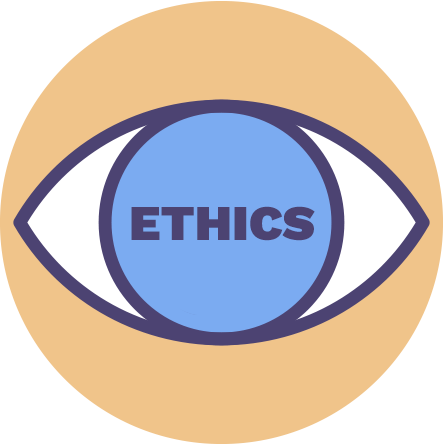Home Study Course: A Review of Ethical Issues for EMDR Clinicians, Consultants, Trainers, and Researchers-Steven M. Silver, PhD
Home Study Course: A Review of Ethical Issues for EMDR Clinicians, Consultants, Trainers, and Researchers-Steven M. Silver, PhD
$70.00
Description
COURSE DESCRIPTION:
This course reviews ethical guidelines for EMDR clinicians, consultants, trainers, and researchers. After reviewing the material, participants will have a general understanding of four broad topics, including, the meaning of ethics as more than a list of behaviors to avoid; the role of the ethical guidelines of the American Psychological Association as a part of EMDR International Association ethical guidelines; the ethical issues EMDR therapy shares with other psychotherapies; and, the particularly significant ethical issues for EMDR clinicians, consultants, trainers, and researchers. The course material makes use of the American Psychological Associations’ Code of Ethics both to clarify its relationship to that of the code of EMDRIA and to provide examples of guidance for ethical issues arising in the various roles EMDR clinicians may play. Included in the course is a series of exercises designed to encourage the development of the steps needed to resolve ethical problems and a reference list suitable for continued professional development in the field of mental health ethics.
AUTHOR:
Steven Silver, PhD, is a psychologist who trained as a Senior Trainer for the EMDR Institute in the first trainers’ training conducted by Dr. Francine Shapiro. He is EMDR International Association (EMDRIA) certified as a Clinician and Approved Consultant, and was the first Programs Chair for the EMDR Humanitarian Assistance Programs. He has worked with trauma survivors and their families since 1972 and for 26 years was the director of an inpatient PTSD Program for combat veterans. Co-author, with Dr. Susan Rogers, of “Light in the heart of darkness: EMDR and the treatment of war and terrorism survivors,” he has over 50 publications.
He received the Elizabeth Snyker Memorial Award from EMDR-HAP, the Ronald A. Martinez, Ph.D., Memorial Award from the EMDR Institute, and the Outstanding and Sustained Service Award of EMDRIA. He was the primary EMDR consultant to the U.S. Army Empirically Validated Trauma Treatment Training Program. He has provided over 200 training workshops in EMDR around the world, including Northern Ireland, Bangladesh, Bosnia, Croatia, and Oklahoma City, among others, and has been a Consultant to approximately 700 EMDR clinicians working with a broad range of clients, including all age ranges, both Axis I and II diagnoses, sexes, and cultures.
COURSE CONTENTS:
- Disclaimer
- Steven M. Silver, PhD, Biographical Information
- Goals of This Material
- What are Ethics?
- Key Elements of Ethics
- Ethical Problems and Dilemmas
- EMDRIA Code of Conduct
- APA Ethical Standards Areas
- 01 Boundaries of Competence
- 02 Providing Services in Emergencies
- 04 Bases for Scientific and Professional Judgments
- 05 Multiple Relationships
- 10 Informed Consent
- 02 Discussing the Limits of Confidentiality
- 01 Avoidance of False or Deceptive Statements
- 06 Assessing Student and Supervisee Performance
- 01 Informed Consent to Therapy
- 02 Therapy Involving Couples or Families
- Avoiding Ethical Problems
- 18 Steps in Ethical Decision Making
- Ethics in the Conduct of the Trainer, Consultant, Supervisor, or Researcher Role.
- Special Case: Supervisors
- Special Case: Researchers
- Summary
- Ethical Issues Practice
- References
- Some Hints/Ideas for the Ethics Issue Practice Cases
OBJECTIVES: Participants will be able to
- Recognize that ethics are about a requirement for correct action and are more than a list of behaviors to avoid.
- Discuss the role of the ethical guidelines of the American Psychological Association as a part of EMDR International Association ethical guidelines.
- Recognize that EMDR therapy shares ethical issues with other psychotherapies.
- Identify particularly significant ethical issues for EMDR clinicians, consultants, trainers, and researchers.
TESTING MEASURE: 25 question multiple-choice test. 80% is a passing score.
Tests are scored within 5 business days of receipt of answer sheet and signed Course Verification and Evaluation Forms. Results, including a CE certificate of completion, will be sent within 3 business days. Upon request, scores and certificates will be faxed.
REQUIREMENTS: Completion of test, receipt of Evaluation/Satisfaction and signed Verification Form. Course completion must be accomplished within 2 years of purchase date.
FEES: $70 test and CE certificate of completion. There is a $25 cancellation fee.
IF YOU HAVE SPECIAL NEEDS, DISABILITY OR CONCERNS: Please contact the EMDR Institute if you have special needs, questions or concerns about registration for the course, course content, course administration, or course evaluation. inst@emdr.com or 831-761-1040. Grievance Policy available upon request.
CONTINUING EDUCATION:
APA: EMDR Institute is an approved provider by the American Psychological Association to offer continuing education for psychologists. EMDR Institute, Inc, maintains responsibility for the program. 5 ce credits.
NYSW: EMDR Institute is recognized by the NY State Education Department’s State Board for Social Work as an approved provider of continuing education for licensed social workers #SW-0125. Approval period: 4/30/21-4/30/24. 5 CE hours.
NBCC: EMDR Institute, Inc. has been approved by NBCC as an Approved Continuing Education Provider, ACEP No. 5558. Programs that do not qualify for NBCC credit are clearly identified. EMDR Institute, Inc. is solely responsible for all aspects of the programs.
NURSES: EMDR Institute is an approved provider of continuing education to nurses through the Board of Registered Nursing, CA: Provider #9755. 5 credit hours
EMDRIA: EMDR is a provider approved by EMDRIA. Provider #99003-DL124 is approved for 5 credits. To receive EMDRIA credits you must have completed the entire EMDR basic training.

